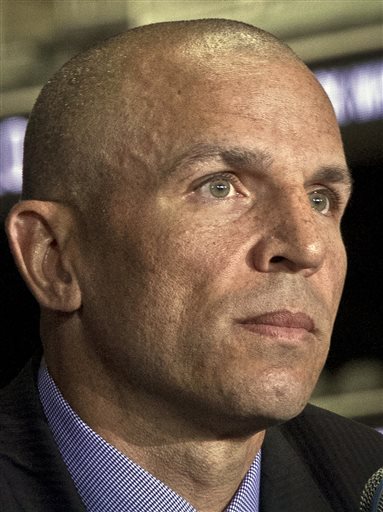Im not mad at J Kidd or hating that he got the job. I'm happy for him. I like him. I just dont get y other qualified coaches get overlooked
— Patrick Ewing Jr (@pewingjr6) June 13, 2013
That quote regarding Jason Kidd’s hiring as Brooklyn Nets head coach — just nine days after his retirement as a player — was tweeted by Patrick Ewing Jr., Spanish league player and son of legendary Knicks center Patrick Ewing.
One of the “qualified coaches” Ewing is referring to is no doubt his father, who has spent nine of the past ten years as an assistant coach with the Rockets, Wizards and Magic, with no head coaching offers to show from it. On June 12, the Bobcats announced Ewing would be their associate head coach AKA an assistant coach with a glorified title.
But does Kidd need “experience”? Should he have to at least cut his teeth as an assistant for one season, as previous Brooklyn Nets coach Avery Johnson did in Dallas? How have previous novice coaches in Kidd’s shoes done in the modern NBA?
For starters, Kidd’s situation isn’t like those neophytes before him. He isn’t on the roster like a player-coach from the NBA of the past and he isn’t several years removed from playing like most of the players turned coach of this NBA millennium. Add to that the pressures of returning to a franchise Kidd resurrected, the weight of a sports starved Borough and the lofty expectations of a Russian billionaire oligarch playboy owner and you have quite the unique situation.
The Player-Coach
In the NBA of yesteryear — when men were men and basketball shorts were shorter and tighter — the player-coach was a common thing. In the 33 years from the founding of the Basketball Association of America in 1946 (the league changed its name to the National Basketball Association in 1949) to 1979, the league had 40 such player-coaches.
Among those on the list were Celtics legend Bill Russell, who won two rings as a player-coach, and Lenny Wilkens, who continued on from player-coach, to coach, to the longest tenured coaching career in NBA history.
No Nets player has ever been a player-coach, but Kevin Loughery, the Nets coach of the 1974 and 76 ABA Championship teams, was a player-coach for the Philadelphia Sixers for 31 games in 1973 before coming to the Nets. Loughery went 5-26 with Philly, somehow an improvement from the team’s 4-47 record before he took over. The 1972-73 Sixers (9-73) remain the only NBA team to fail to win 10 times in an 82 game season.
Loughery is the all-time winningest regular season coach in Nets franchise history, with 297 wins – mostly in the ABA – from 1973-1980.
In 1984, as computers shrank and the Cold War thawed, the NBA adopted a salary cap that eliminated the player-coach position. The thinking was that teams could circumvent the salary cap, as coaches’ salaries are not covered under the cap.
Jason Kidd won’t be a player-coach, but he is the first player in a long time to take over a team immediately after retiring from playing. Mike Dunleavy Sr., regrettably considered a potential candidate for the Nets head coaching vacancy this offseason, technically became a coach in his first season after retiring, but his situation was different.
After leaving basketball for a few seasons to do investment banking following the 1984-85 season, Dunleavy re-surfaced as an assistant coach for the Bucks from 1988-1990. During that time, he played seven games as an assistant player-coach. It is unclear if the league let him do it because he was so insignificant a player as to make any implications or impropriety laughable or if they simply didn’t notice.
Dunleavy would earn his first head coaching experience with the Lakers in the 1990 offseason, replacing Showtime coach Pat Riley, who stepped down amid rumors of player mistreatment and anger issues.















